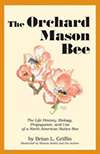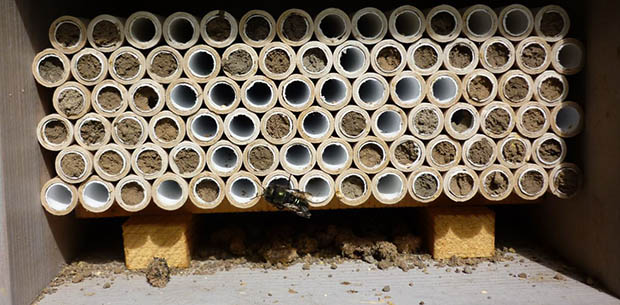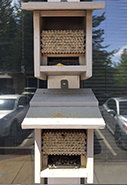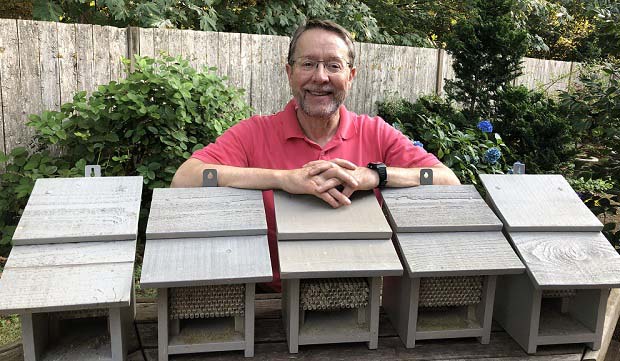Sometimes, Farallon Senior Geologist Don Lance protects the environment by managing multimillion-dollar cleanup projects, and sometimes he does it one pollinator at a time.
Don’s interest in bees started in the early 1980s in the Sonoran desert. A coworker’s honeybee hive swarmed—a natural event to create a new hive when the original hive is overpopulated—and Don was able to capture the swarm and start his own colony. “In the mild Arizona climate,” Don recalls, “it seemed there was always something in bloom, which kept the bees busy year-round.” The bees rewarded Don’s care with 10 to 12 gallons of honey a year.
When Don moved to the Pacific Northwest in the early 1990s, he left beekeeping behind. Soon, though, he saw an ecological niche that needed filling, and found the tiny team to do it. “I became interested in red worms after talking to a local composting advocate, and got some worm bins for composting our household food waste. At the time, it was the only way to keep your food waste out of methane-producing landfills.” Along with eliminating food waste, the red worms produced nutrient-rich compost for Don’s plants. “Worm bins are a harder sell than bees,” Don says, “and they never really caught on in my neighborhood. Once the city started collecting residential food waste, most people stopped using worm bins.”

Don’s interest in natural environmental helpers didn’t disappear with the worm bins, though. Another neighbor, a master gardener, introduced Don to the environmental importance of mason bees. Following suggestions in The Orchard Mason Bee, a book borrowed from his neighbor, Don drilled some holes in a wooden block to make a bee condo, and hung it on the side of his house. “I thought since they’re native to the area, if I built a good place to nest, it might attract them. Sure enough, it only took a few days before several bees found the block and started laying eggs.” Since then, Don’s been harvesting 2,000 to 3,000 bee larvae a year, and sharing the dormant bees to encourage other people to give these efficient pollinators even more places to call home.
“Mason bees are very different from honeybees,” says Don. “They’re solitary and don’t colonize. And although they’re gregarious, they function as individuals and don’t need the complex social hierarchy of honeybees. Since they don’t have a hive or honey to defend, mason bees are mild-mannered and rarely sting, which makes them good neighbors and fun and educational for both adults and kids. And they’re much more efficient pollinators, too.”

Mason bees pollinate up to 100 times more effectively than honey bees because of the way they carry dry pollen on their bodies, allowing it to transfer to new blooms. Honey bees, in contrast, dampen the pollen with their saliva so that it sticks their hind legs and can be carried back to the hive. A female mason bee lives for about 4 to 8 weeks, and will lay around 30 eggs, with nearly 60,000 blossom visits.

“I’ve been singing the praises of mason bees for many years. Because my backyard is shaded, which isn’t the best location for a bee condo, I have four other condos that I distribute around my neighborhood, and two more I keep at the Farallon office in Issaquah. The Issaquah condos are by far the best performers, which I like to say is the result of all the positive energy emanating from the Farallon building! More likely, though, it's the excellent southwestern exposure that warms up the condos and gets the bees moving early in the morning and well into the evening.”

In 2016, the United Nations Environment Program confirmed the critical role pollinators play in the global food supply, and found that as many as 40 percent of insect pollinator species were threatened by factors such as changes in land use, pesticides, and global warming. But with the support of advocates like Don, Team Mason Bee can continue to thrive.
To learn more about mason bees, visit The Honey Bee Conservancy. Start a nest in your own backyard with a few simple resources from places like Knox Cellars Mason Bees.
